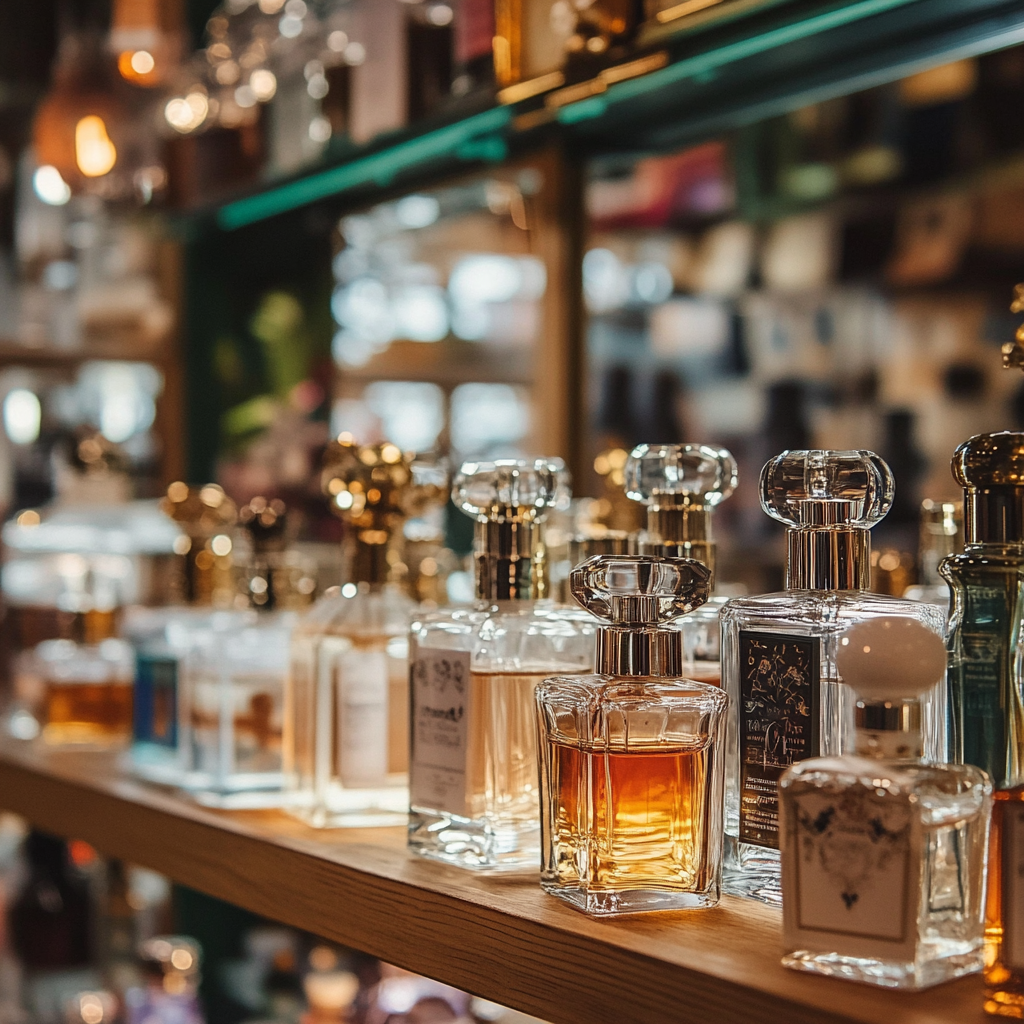Choosing and applying perfume correctly is an essential part of personal grooming and style. A well-chosen fragrance can enhance your presence, boost your confidence, and make a lasting impression. However, many people make mistakes in both selecting and wearing perfume, which can undermine the desired effect. Understanding these common errors and learning how to avoid them is key to fully enjoying your fragrance experience. The goal of this article is to highlight some of the most frequent mistakes in the world of perfumery and provide practical tips for choosing and applying perfume correctly.
Mistakes When Choosing a Perfume
One of the most common mistakes people make when choosing a perfume is ignoring their skin type. The way a fragrance behaves on the skin can vary depending on whether your skin is oily, dry, or somewhere in between. Oily skin tends to hold onto perfume longer because the oils in the skin trap the scent molecules, often intensifying the fragrance over time. On the other hand, dry skin can cause a perfume to fade more quickly, as it absorbs the fragrance faster, resulting in a shorter wear time. To address this, people with dry skin should consider using a good moisturizer before applying perfume, as hydrated skin helps the scent last longer.
In addition, another mistake is buying perfume without proper testing. Many people make the mistake of selecting a fragrance based on a quick sniff from the bottle or a brief test on a paper strip in a store. However, this method doesn’t give you the full picture. Perfumes develop over time and change as they interact with your skin’s natural chemistry. A fragrance has three layers: top, middle, and base notes, and how it smells after the first spray is often quite different from how it smells hours later. Always test a perfume on your wrist, wear it for several hours, and observe how it evolves before committing to a purchase.
Another frequent mistake is following popular trends without considering personal preference. While it can be tempting to purchase a fragrance that’s currently in fashion, it’s important to remember that perfume is deeply personal. What works for one person may not suit another’s personality or body chemistry. Popularity doesn’t necessarily mean a perfume will smell good on everyone. It’s important to choose a fragrance that resonates with your own style, preferences, and individuality rather than simply following what’s trendy at the moment.
Lastly, some people choose perfumes based on the season or occasion without considering how it fits their overall lifestyle. While it’s true that lighter, fresher scents are often recommended for summer, and heavier, warmer ones for winter, it’s more important to find a scent that complements your everyday life. For example, a strong, bold fragrance might be perfect for an evening event but could be too overpowering for an office environment. Understanding when and where you’ll wear a perfume is crucial for making the right choice.
Mistakes in Applying Perfume
One of the biggest mistakes people make when applying perfume is spraying it on the wrong parts of the body. Perfume should be applied to the pulse points—areas where the blood vessels are close to the skin, such as the wrists, neck, behind the ears, and the inside of the elbows. These areas naturally emit heat, which helps diffuse the fragrance throughout the day, allowing it to evolve and project better. However, many people rub their wrists together after applying perfume, which is a common but serious mistake. Rubbing breaks down the perfume’s molecules and can cause the scent to fade faster, preventing it from developing fully.
Another common error is over-applying perfume. While it’s understandable that people want their fragrance to last all day, applying too much can result in an overwhelming and unpleasant effect. Perfume is meant to enhance your presence subtly, not dominate the room. Typically, two to three spritzes on pulse points are enough to create a long-lasting yet not overpowering scent. If you feel the need to refresh your fragrance during the day, a light reapplication in the afternoon is much more effective than overloading your skin with too much perfume in the morning.
People often make the mistake of applying perfume directly to clothing or accessories. While this might seem like a good idea for making the scent last longer, it can actually lead to unwanted issues. Perfume contains oils and alcohol, which can stain delicate fabrics like silk or leave marks on light-colored clothes. Furthermore, spraying perfume on clothing doesn’t allow the fragrance to interact with your body chemistry, meaning you won’t experience the full depth and evolution of the scent. Instead, always apply perfume directly to your skin, where it can blend with your natural oils and develop properly.
A less obvious but equally problematic mistake is not considering reapplication correctly. Many people believe that once applied in the morning, perfume should last the entire day, but even high-quality fragrances may fade after several hours. Rather than reapplying large amounts, it’s better to carry a small travel-sized bottle for touch-ups. A light spray in the afternoon can revive the fragrance without causing it to become overwhelming or clashing with other scents you may have encountered throughout the day.
The Effect of the Environment on Fragrance
Another mistake is ignoring environmental factors such as temperature and humidity, which can greatly impact how a fragrance performs. Hot weather tends to make perfumes evaporate faster, and in some cases, the heat can amplify certain notes, making the scent more intense than intended. In warm climates, lighter and fresher scents like citrus, aquatic, or green fragrances are more appropriate, as they offer a refreshing effect without becoming overwhelming. In contrast, during the winter months, perfumes tend to last longer, but their projection can be reduced by the cold air. Richer scents, such as woody, spicy, or oriental fragrances, work better in colder weather, as their warmth and depth can cut through the chill.
- Another common issue arises from improper storage of perfume. Perfumes are sensitive to light, heat, and humidity, which can alter their composition and cause them to degrade over time. Storing perfume in the bathroom, where humidity levels rise and fall frequently, or placing it on a sunny windowsill can damage the fragrance. The best way to preserve the quality of your perfume is to store it in a cool, dark place, such as a dresser drawer or closet. Proper storage ensures that your perfume retains its original scent profile for as long as possible.
- Many people also forget that air quality can influence how a fragrance performs. In urban environments with higher levels of pollution, certain perfumes may not last as long or may interact with pollutants in the air, altering their scent. In such cases, opting for more intense formulations, such as parfum instead of eau de toilette, can help ensure your fragrance remains intact. Alternatively, in cleaner, more natural environments, perfumes tend to stay true to their original composition and project better, allowing you to fully appreciate the different layers of the fragrance.
- Lastly, seasonal allergies or changes in the environment can affect how you perceive a fragrance. If you have allergies, certain perfumes may become overpowering or irritating, especially those with heavy floral or spicy notes. It’s important to be aware of how environmental factors and your own sensitivities may alter the experience of a fragrance, and adjust your perfume choice accordingly. Opting for hypoallergenic or lighter scents during allergy seasons can help you avoid discomfort while still enjoying your favorite fragrances.
Mistakes in Combining Perfume with Other Products
Many people don’t realize that combining perfume with other scented products can lead to clashing aromas. Body lotions, deodorants, and hair products often contain their own fragrances, which may not harmonize well with your chosen perfume. This can result in a confusing and unpleasant mix of smells that diminishes the elegance of your perfume. To avoid this, it’s advisable to use unscented body care products or those that are part of the same fragrance family as your perfume. For instance, many perfume houses offer matching body lotions, shower gels, or hair mists that can enhance and extend the life of your fragrance without clashing.
Another mistake is over-layering products, such as using a strong deodorant, aftershave, and perfume all at once. Each product has its own scent profile, and while layering can sometimes enhance the overall fragrance experience, overdoing it can create an overpowering effect that confuses the senses. When layering, it’s important to strike a balance. If you’re using scented body products, choose lighter perfumes that complement rather than compete with the base scents. This way, the different layers work together to create a harmonious fragrance experience.
Some people also make the mistake of ignoring their personal preferences when choosing a perfume. While it’s important to consider how others might perceive your fragrance, ultimately, perfume is a personal expression of your style and mood. Wearing a fragrance that you don’t truly love, simply because it’s popular or recommended by someone else, can leave you feeling disconnected from your own identity. Your perfume should make you feel confident, comfortable, and authentic. When selecting a fragrance, trust your own preferences and choose something that resonates with you emotionally and aesthetically.
Lastly, many forget that different products can affect how perfume smells over time. For instance, using a heavily fragranced body lotion might alter the base notes of your perfume as it interacts with your skin throughout the day. To ensure your perfume’s true essence remains intact, opt for fragrance-free or lightly scented body products that won’t interfere with your chosen scent. This allows the perfume to develop naturally on your skin, revealing its full complexity without competing with other aromas.
Also, we advise you to read our other article, where we talked about eco-perfumes.
FAQ
Oily skin holds onto fragrance longer, intensifying the scent, while dry skin causes perfume to evaporate more quickly, often making it fade too soon.
Perfumes develop over time, so it’s essential to test them on your skin and wear them for several hours to see how the scent interacts with your body chemistry and the base notes that will linger.
Following trends can result in choosing a fragrance that doesn’t suit your personality or style, and trendy perfumes can make you smell like everyone else, losing the unique expression that perfume offers.

